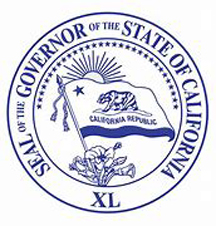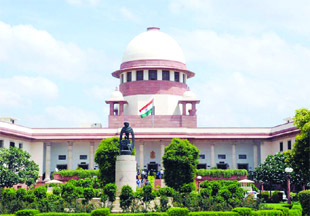
WASHINGTON, D.C. (TIP): A high-powered delegation of 31 provosts, vice provosts, deans, and other leaders from 17 top American universities are travelling to India next week as part of their goal to strengthen India-US collaboration and student and scholar mobility between the two countries.
The delegation from the American universities will visit 26 institutions in New Delhi, Mumbai and Hyderabad.
This visit gains significance in the wake of the recent spate in incidents of attacks on Indian students and those of Indian origin in various parts of the country.
The delegation builds on recent years of US and Indian government-led efforts to partner in pursuit of mutually beneficial strategies. Last year, the president and prime minister from each country embarked on state visits to the other, affirming the US-India Comprehensive Global and Strategic Partnership, a media release said.
We will have the opportunity to meet with 26 Indian institutions to talk about collaboration, mobility of students and scholars between our two countries and securing and fostering enduring partnerships between institutions, A. Sarah Ilchman, co-president of Institute of International Education (IIE), told PTI in an interview before leaving for India. Indian students and scholars in the US now are at record numbers and it’s very exciting to watch close to 270,000 Indian students on US campuses and about 17,000 Indian scholars in the US right now. So, it’s an exciting time to be engaging with India and Indian institutions to try to further increase this engagement and collaboration, she said.
The IIE Leadership Delegation to India from February 25 to March 2 would have representations from California State University, Long Beach; University of California, Berkeley; DePaul University; University of California, Davis; East Tennessee State University; University of Houston; Florida International University; University of Illinois, Urbana-Champaign; Michigan State University; University of Massachusetts, Amherst; Mississippi State University; University of Missouri; Montclair State University; University of Rochester; Oklahoma State University; University of Tulsa and Rutgers University.
More than 40 per cent of India’s 1.4 billion population is under the age of 25, and demand for education exceeds in-country supply. Apart from meeting Indian government officials, the delegates will visit US consulates, the Indian School of Business, IIT Hyderabad, Mahindra University, Narsee Monjee Institute of Management Studies, and Somaiya Vidyavihar University. Topics to be discussed include setting up of international branch campuses in India, the impact of ed-tech in Indian higher education, and the higher education business landscape.
We hope from this delegation that there will be many active partnerships and engagements between US institutions and Indian institutions and that we can increase the flow of students and scholars both ways, Ilchman said. Observing that the US has probably the most diverse higher education system in the world with specialized programs, institutions of all sizes and shapes and focuses, Ilchman said the United States has much to offer to students from India as compared to other global destinations.
We also are a brand. People know that the reputation of an education in the US is highly sought after, and in addition, the United States has tremendous capacity and room to welcome international students,” she said.
Some countries such as the UK or Australia or Canada have close to 20 per cent or more international students in their higher education system, Ilchman pointed out.
“In the United States, only about six per cent of the higher education system are international students. So we have capacity to welcome more, she said. Ilchman said India has been a long-standing investor in US higher education by sending students and scholars through optional practical training (OPT), which is the opportunity to do practical work in your field of study after your degree programme.
Many Indian students and scholars have had the opportunity to work in the United States to found organizations and companies that have done tremendous things, she said.
So, the impact of Indians and other international students in the United States is significant in what they contribute back to society, she noted.
The delegation would also meet members of the US embassy while in India.
Of course, visas and the timely issuance of visas is critically important for all of this to work. The Department of State has been much more open and transparent about the number of visa applications that are in the pipeline, how many have been approved, and how long it takes to get a visa interview, the IIE co-president said.
With this transparency we’re starting to see more data and more information that the visa process is working out, some of the obstacles in kinks that we have seen, she added.
On a question on the spate in attacks on Indian students in recent weeks, Ilchman said, US colleges and universities prioritise the health and safety of all of their students on campus, both domestic and international.
Building safe and inclusive communities is part of what US universities try to do every single day. They are very familiar with welcoming and supporting international students on their campuses. US institutions are on the forefront of providing mental health resources to ensure that all students have the support that they need during their studies, she added.
Asked about some of the unscrupulous universities in the US, which many a times resulted in Indian students being deported from the US airports on arrival, Ilchman said, Unfortunately there are individuals who are working outside the system and creating opportunities that don’t exist and attract individuals there. I know that they’re trying to clamp down on these unfortunate actors in the industry.





Be the first to comment